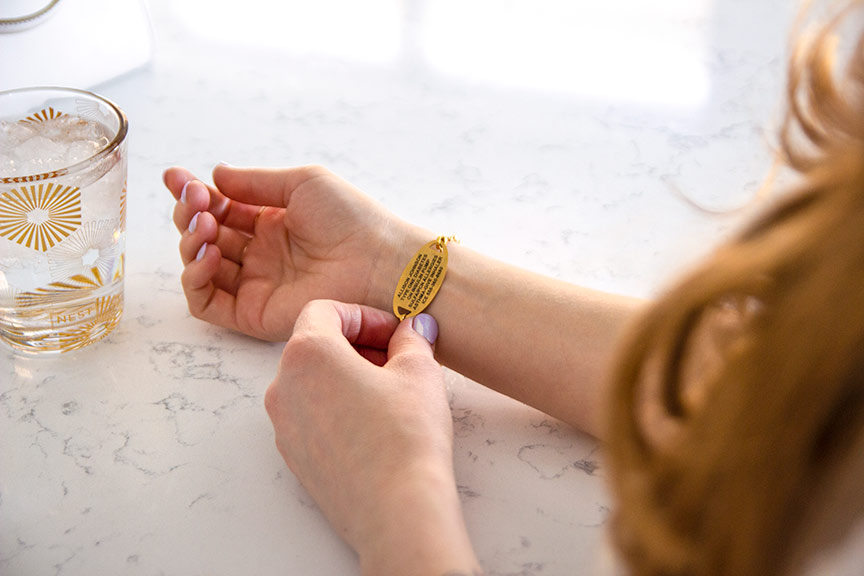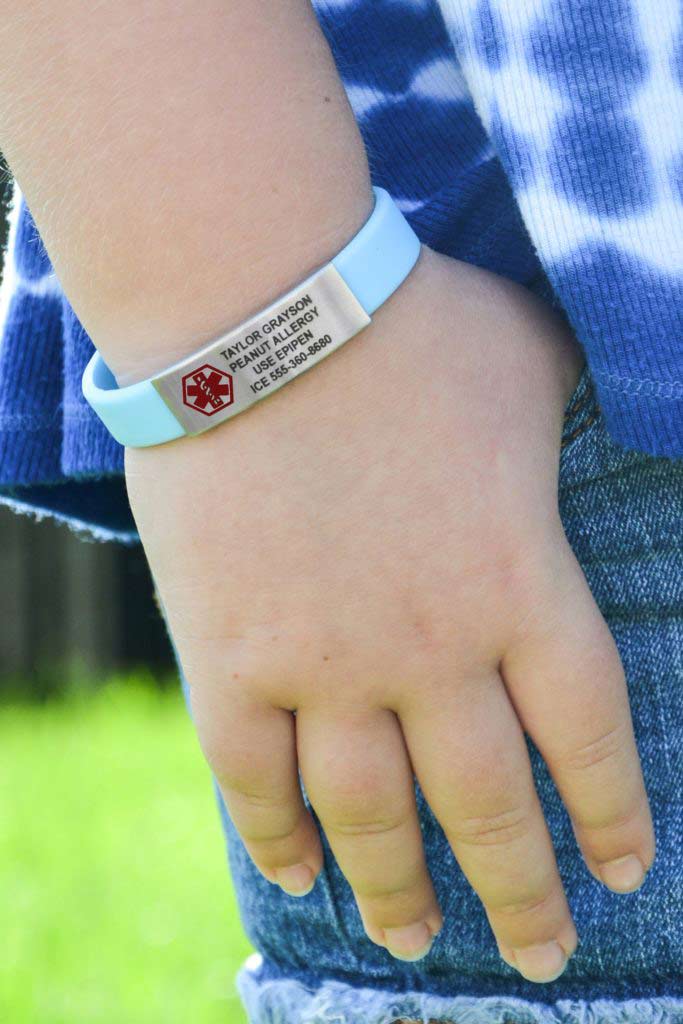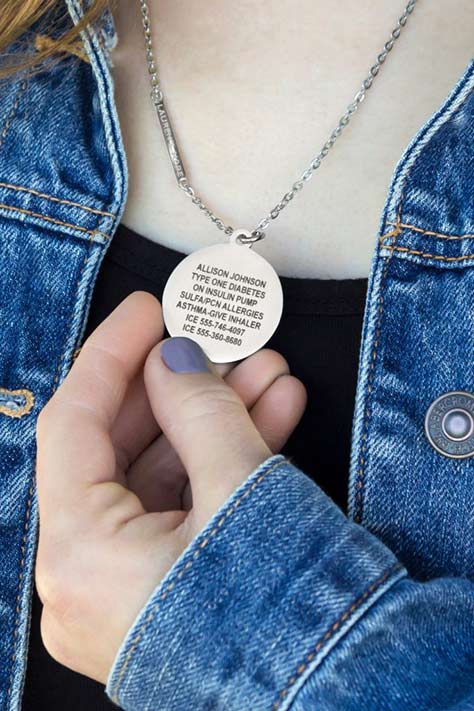Heart disease, also known as cardiovascular disease, is the number one killer of men and women in America. The term encompasses a vast array of different health problems that affect the heart. Because there are so many variables – conditions, medications, implantable devices – there is a lot of information that a paramedic needs to know before treating you if you are a heart patient. If you are unconscious, a medical ID can give first responders the information they need to provide you with the help you need when time is precious. But what information should be put on a medical ID? Your name (first and last) is a good place to start. Here are a few things you should have engraved on your heart patient medical ID.

Heart Patient Condition
Emergency responders need to know what type of condition(s) you have, as different heart conditions can affect the treatments provided. Whether you are a heart patient with an arrhythmia, or have a history of stroke, this information is essential in helping EMTs and other first responders provide timely, appropriate treatment.
Heart Patient Medications
Many heart conditions require special medications. Some medications pose risks for drug interactions, while others put heart patients at a risk for blood clots. Many others, such as Coumadin and Xarelto, are anticoagulants, or blood thinners. These medications put you at risk for severe blood loss, even with minor trauma. Blood thinners also raise the risk of experiencing serious internal bleeding. Knowing that you are on blood thinners, and what type, will alert first responders to check for signs of bleeding, and take action immediately.
Your Allergies
If you have any allergies, it is important that you have them listed. This will let first responders know what to avoid when administering treatment. For example, corn allergies mean a standard IV can be dangerous. Latex allergies mean that first responders need to use non-latex gloves. Listing your allergies can help make treatment easier and help EMTs diagnose and/or prevent reactions. If you don’t have any allergies, you can list NKA (no known allergies) or NKDA (no known drug allergies) so first responders are confident in their treatment.
Any Implantable Devices
Some heart patients have implantable devices, such as stents, artificial valves, or pacemakers. Even some heart transplant patients may have metal sternal wire sutures. Metals used in these devices may be attracted to magnets. This means that MRIs may not be safe, and should you be unable to advocate for yourself, this is something emergency medical personnel need to know.
Emergency Contact Information
If you are alone during an emergency, and are unable to advocate for yourself, it is important that emergency responders are able to contact a family member. While no one likes getting news that a loved one has been hurt and is in the hospital, having someone to contact can give your family peace of mind and can help with your treatment, as your ICE (In Case of Emergency) contact should be someone who is familiar with your condition(s) and treatment considerations. Using the abbreviation ICE can save space, and if room allows, it’s a good idea to include two emergency contacts. Listing cell phone numbers is ideal so that medical personnel have the best chance of reaching your emergency contact.
If you have a heart condition, wearing Lauren’s Hope medical ID jewelry can help keep you safe in an emergency situation while keeping you stylish every day. If you need help with what to engrave on your heart patient medical ID, contact us today!

